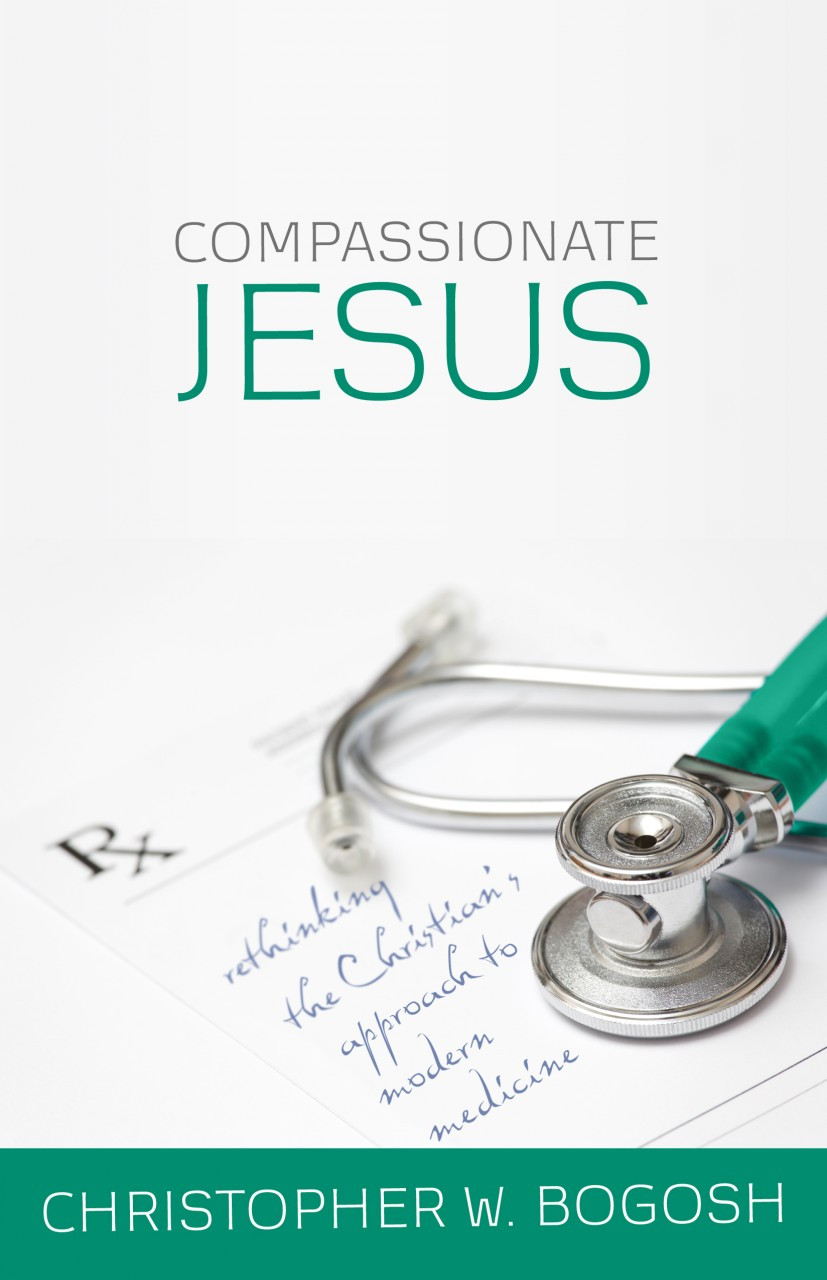
Compassionate Jesus by Christopher W. Bogosh
This new book, Compassionate Jesus, is a Christian approach to
medicine is an eye-opening and insightful book about the relationship between
modern medicine, including its philosophy, and the gospel. Engaging the idea of prolonging life at any
cost, Christopher brings a robust biblical understanding of medicine to the
table. With stories, examples, biblical
wisdom and first- hand knowledge of medical manuals and procedures, this book
is a good foray into the world of modern medicine. Not wanting to go with the status quo and
follow the medical professionals advice without investigation, Christopher digs
deeply into the Bible and science for a more compassionate approach to
medicine.
At the beginning of the book, Chris takes us up front and
center to his own life by telling of his sister’s tragic death in a car
crash. Chris gleans three important
things from the Scriptures about this event in his life: God is merciful, God
is just, and God is in absolute control of everything including the fact that
God has a purpose for all events. God
allows us to live on this Earth even though we sin, secondly, God is equitable
in doing what is true to himself, and lastly, God brings about all things for
his purposes even if we don’t understand.
These truths are what Chris roots his book on, the truth that God’s
redemptive plan is at the center of all things (15-16). The better foundation here is that God is
teaching us through even the tragic situations of life to trust him, to bring
even our doubts and frustrations before him.
Furthermore, illness, tragedy, death and sickness are not fully about
us, but what God is doing to redeem these situations and bring us into closer
relationship with him. This biblical
perspective runs counter to the modern science movement in its goal to remove
anything that would cause our lives to be shorter due to illness or tragedy.
Chris says something pretty radical in his chapter on compassionate
health care. He writes, “It is wonderful
to see a sick person healed physically, whether by miracle or medical
treatment, but is equally praiseworthy to see a person persevere under
affliction and die in the Lord with no curative treatment” (38). Building up to this point, Chris points out
that pointing our ultimate help in physical healing by the means of modern
medicine becomes idolatrous when we eschew the fact that we will die at some
point and seek physical healing rather than the spiritual healing that comes
from Christ. A person persevering in
faith in God who finds no curative treatment is equally as praiseworthy because
this person realizes the limitations of modern medicine and decides to fully
trust God even in very painful
afflictions. Now, Chris is not advocating
an absolute refusal of medicine or help from doctors for patients, but is
wanting his readers to weight the costs of medical procedures in light of sin,
limitations of medicine, and the economic and emotional toll on family members
also.
Chris takes us on a quick ride through understanding the
science of hope, cancer, alzheimer’s and
the philosophy that undergirds modern medicine. In some ways, modern medicine has called upon
itself as the ultimate truth in which dying patients, or those in very critical
situations come to its fount for healing, and in turn find no final hope at all
(51-52). Chris in further chapters
elucidates the new writing concerning brain death and how this runs counter to
the biblical record of life ceasing to be when the heart and lungs fail. This book was a real eye-opener for me, one
that I will consult again to get a better grasp of a more compassionate biblical
understanding of medicine. Some of Chris’
research about brain death and modern medicine was very disturbing indeed, but
it was the kind of information that we need when making end of life decisions.
Thanks to Reformation Heritage Books and Cross Focused
Reviews for the complimentary copy of this book in exchange for review.
Comments
Post a Comment